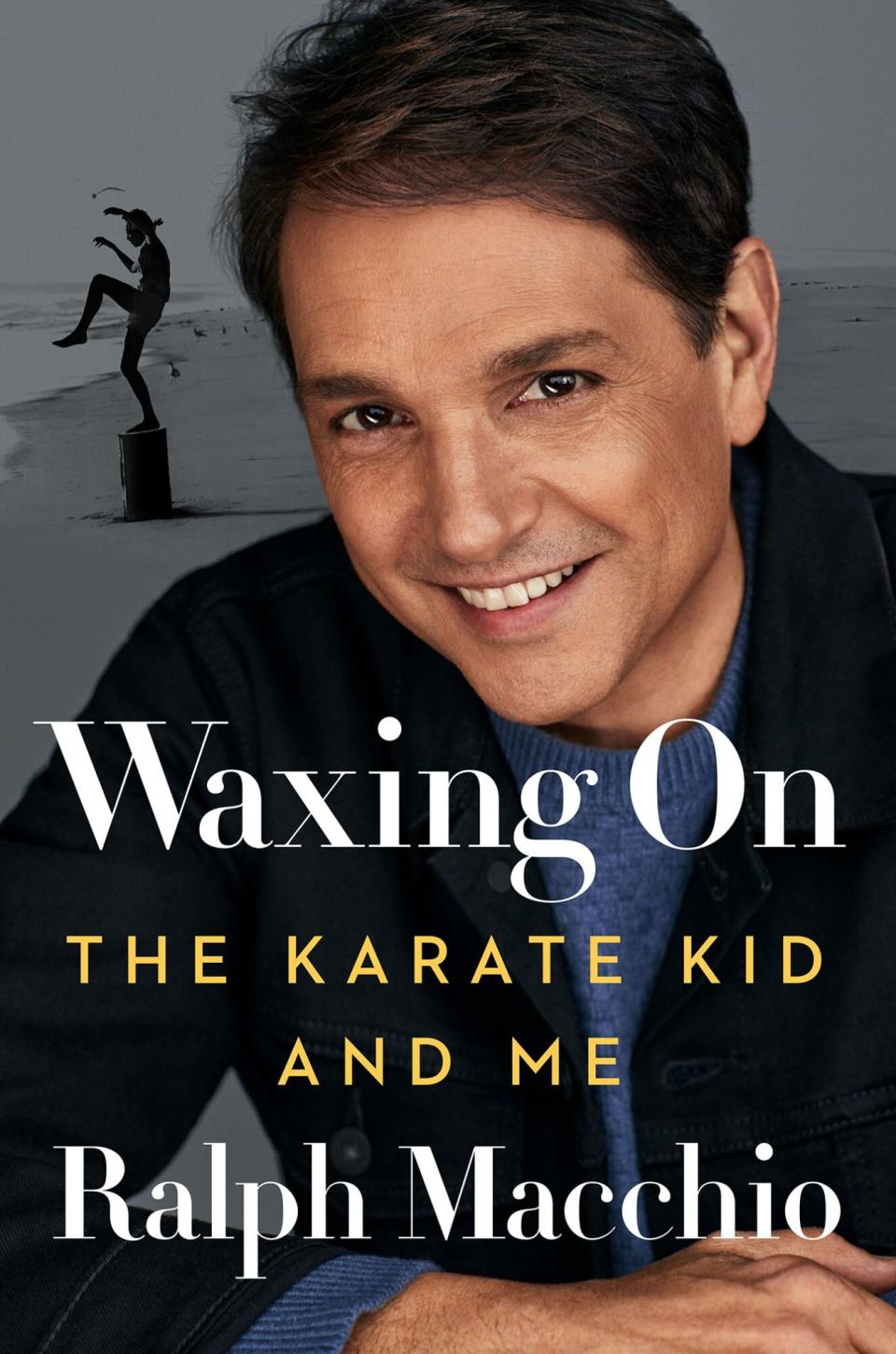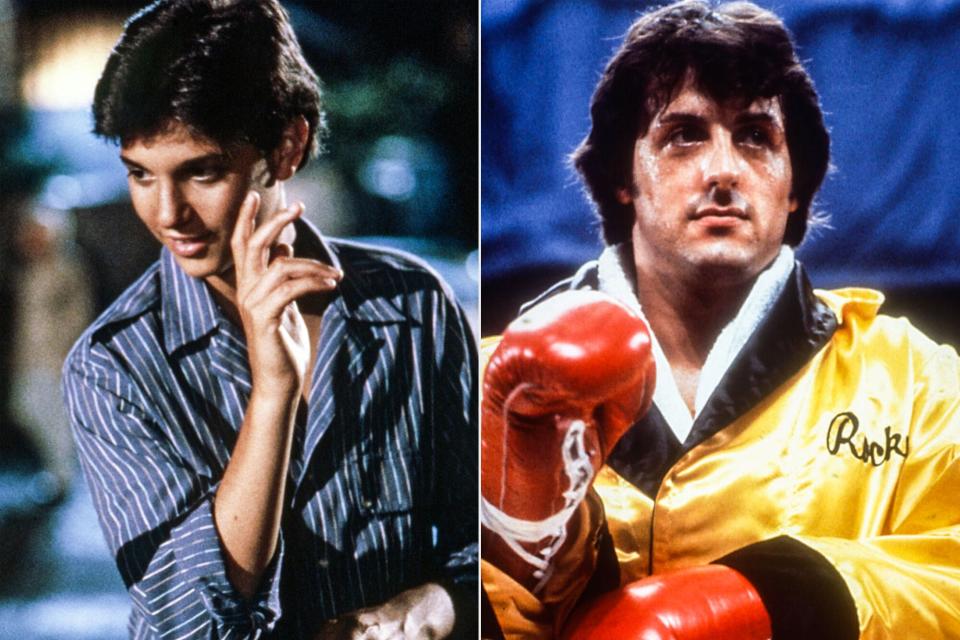Ralph Macchio reveals the worst Karate Kid sequel idea he ever heard in Waxing On excerpt
- Oops!Something went wrong.Please try again later.
- Oops!Something went wrong.Please try again later.
- Oops!Something went wrong.Please try again later.
- Oops!Something went wrong.Please try again later.
- Oops!Something went wrong.Please try again later.
Nearly three decades passed between the release of The Karate Kid Part III and the premiere of Cobra Kai, but for Ralph Macchio, Daniel LaRusso has never gone away. In his new memoir Waxing On: The Karate Kid and Me (out Oct. 18), the actor looks back on his journey as the titular Kid, which began back in 1983 when he got invited to audition for a movie about a bullied teenager who uses martial arts to defend himself.
Forty years, three sequels, one reboot, and a hit Netflix series later, The Karate Kid continues to play a major part in Macchio's life. But there was a time when the actor hoped to put some space between himself and Daniel LaRusso, as he tried to broaden his career beyond the character that made him famous. Of course, that didn't stop writers, fans, agents, and anyone with an idea from pitching Macchio on ways to bring The Karate Kid back. Spoiler alert: Most of these ideas were… not good, to put it kindly.
In this exclusive excerpt, Macchio shares some of the more absurd pitches he heard over the years, including one franchise crossover that left him and director John Avildsen speechless. Read on below.

Dutton The cover of 'Waxing On: The Karate Kid and Me,' by Ralph Macchio
Excerpt from Waxing On: The Karate Kid and Me, by Ralph Macchio
I can't begin to share all of the pitches and ideas I had heard over thirty years on how and why I should return to the LaRusso well. But I do have some of the keepers that are well worth presenting. Especially at this juncture, when I look smart for waiting and only agreeing to Cobra Kai. Phew! I don't blame many of the fans, writers, and producers who would share with me their reasoning or ideas for a reboot or sequel concept. I understood that for the most part, it all still stemmed from the love of the original film. But this was a big part of my legacy. I was extremely protective and held this role and that movie to such a high personal standard that it would be difficult for anyone to break through that.
Now, in the early days — say, the late 1990s, when I first started hearing ideas — I was pretty much at a point where I wasn't willing to listen. This was a period in my career when I was actively trying to separate from the typecasting. However, as time went on I would slowly open one ear at a time and attempt to be flexible enough to at least hear them out. I must admit on most occasions it was challenging to get past the first few sentences.
Miyagi dies tragically and comes back as a ghost to guide you.
You have a kid that is a bully and you need to be the Miyagi to your troubled kid . . . who also has a drug problem.
Ali is pregnant with Johnny's child and you can't deal even though you're now married to Kumiko.
Those are just a few that stick in my mind. The best part is that they were completely serious and came from a perspective of trying to help. It was less about "I have a great idea" and more about "I want to get you back." Upon recollection, that still brings me joy. I mean, I do have the greatest, most caring fans. But at the time, I could only smile through the pain of some of these story concepts.
Then there was one of my favorites. It was delivered by a screenwriter to both John Avildsen and myself at a lunch with two studio executives. This was all and everything that is both great and terrible about Hollywood. I believe we were having the lunch to discuss a separate movie project that never did come to fruition. This was after the Hilary Swank version, The Next Karate Kid, had come and gone. I remember the enthusiasm with which the writer gave his "elevator pitch" to John, me, and the studio execs. John had directed both Rocky and The Karate Kid, so that lent itself to this writer's conceptual idea. It was basically a version of this:
What if Rocky Balboa had a kid and Daniel-san had a kid and they were both f---ups and you, Ralph and Stallone, come together between New Jersey and Philadelphia to join in a Miyagi/Mickey style of fight training. People would go nuts!

Everett Collection (2) Ralph Macchio in 'The Karate Kid Part II' and Sylvester Stallone in 'Rocky II'
A pregnant pause. It seemed to last for ten minutes, though it was probably only four seconds. Suspended animation. How to process it and respond? The most vivid image in my mind is the lean-in by the two studio executives, as if they were attempting to will it to make sense. John and I shared a mystified look about the concept of this crossover idea. My mind raced to gather visions of Stallone and me running through the slums of Newark. Then John burst into laughter, simply responding that it would not work and was a forced idea. I believe he diplomatically said he wasn't interested in combining those two franchises or those characters. Clearly this was before DC Comics and Marvel changed the landscape of the cinematic superhero world. What did we know? But for that moment it was both intriguing and hilarious. The executives also agreed it wouldn't work; however, they could not mask their disappointment that a big idea had fallen through. Like a prize fish was being reeled in and just when it got to the side of the boat, the line snapped. It was a classic Hollywood show-business moment I'll never forget.
There were a fair number of other nudges and "Come on, man!"s over the years, from one-line blurbs to more realized versions of how and why to revisit Daniel LaRusso. But it was all too precious to me to risk any one of the "years later" concepts that could spoil the legacy of the original. For the most part they were shortsighted ideas. And I wasn't inspired (at the time) to dance a solo, without the ability to incorporate the Miyagi character. That partnership was paramount. It was easier to just say no thank you.
And I was at peace with that. I remember being asked, "Where do you think LaRusso is now? What happened to him?" This was probably around 2010, when the remake was out. And I didn't really have a perfect answer. I never dove into or considered the "What ever happened to…?" question. Whatever happened to Daniel was whatever you saw on-screen. That's where it ended. But as I tapped into it, my first instinct was that Daniel and Miyagi would have returned to Okinawa, the setting for The Karate Kid Part II. Both characters had love story lines that had never been resolved or even brought up again. Those stories had been abandoned. I think in real life, that is where LaRusso would have returned to. At the least to further explore that romantic relationship with Kumiko. But that never materialized, nor was it in the screenwriting cards. The studio chose a different direction. I also didn't really have the action story mapped out to make it exciting and worthy of a fully realized film. For the longest time, everything always fell short of the original film and the pedestal I kept it on. So, again, my theory, at the time, was that it was easier to let it exist only as it was. It had become a classic. Let it be.
Billy Zabka, my Karate Kid co-star, was always more open to exploring than I was. He and I would discuss it from time to time, and after a while I did start to loosen my grip on my self-imposed mandate, allowing a little light to shine in on a seed of an idea for our two characters and how and where something might or could bring them together. We even got to the early stages of development on a short-form concept featuring our characters for the internet or a cable comedy channel, but it never panned out — thankfully. Something bigger and better was on its way.
Related content:

